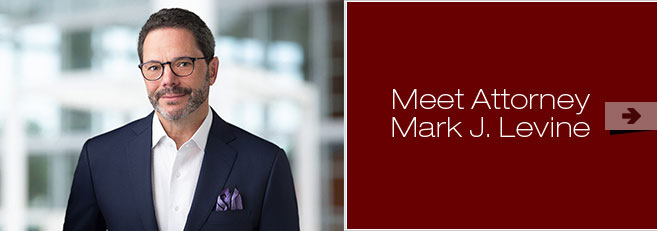Categories
Recent Posts
- Meaningful Harassment Training
- Put it in Writting
- Get A Receipt: How to stop employee misappropriation
- Focus on the Wins
- HALLOWEEN EDITION: CUES TO CALL A LAWYER
Archives
- December 2023
- October 2023
- May 2023
- February 2023
- October 2022
- August 2022
- May 2022
- April 2022
- March 2022
- January 2022
- June 2021
- May 2021
- December 2020
- September 2020
- July 2020
- May 2020
- March 2020
- February 2020
- December 2019
- October 2019
- September 2019
- June 2019
- April 2019
- March 2019
- January 2019
- December 2018
- September 2018
- June 2018
- May 2018
- February 2018
- January 2018
- December 2017
- September 2017
- July 2017
- May 2017
- April 2017
- January 2017
- October 2016
- September 2016
- July 2016
- June 2016
- May 2016
- March 2016
- February 2016
- December 2015
- November 2015
- October 2015
- August 2015
- June 2015
- May 2015
- March 2015
- January 2015
- December 2014
- November 2014
- September 2014
- August 2014
- July 2014
- May 2014
- April 2014
- March 2014
- February 2014
- January 2014
- November 2013
- September 2013
- August 2013
- July 2013
- June 2013
- May 2013
- April 2013
- February 2013
- January 2013
- October 2012
- August 2012
- July 2012
- May 2012
- April 2012
- January 2012
- December 2011
- November 2011
- October 2011
- September 2011
- May 2011
- March 2011
- January 2011
- December 2010
- November 2010
- October 2010
Winning Unemployment Claims
Posted on December 1, 2010 in Employment Litigation
Winning unemployment claims starts with the same advice my wife regularly shares regarding our three children: pick your battles. Employers should first ask whether particular claims for unemployment are worth fighting.
When is a person ineligible for unemployment benefits?
The reason for termination must of course satisfy the Texas Unemployment Compensation Act’s standard that the employer terminated the employee for “misconduct.” Under the Act, “misconduct” is defined as “mismanagement of a position of employment by action or inaction, neglect that jeopardizes the life or property of another, intentional wrongdoing or malfeasance, intentional violation of a law, or violation of a policy or rule adopted to ensure the orderly work and the safety of employees.”
Laid-off employees qualify for unemployment compensation because no fault or misconduct resulted in job loss. Likewise, an unemployment claimant most often will be awarded benefits when the reason for termination is the generic, “It’s just not working out.”
In contrast, some claims for unemployment compensation (e.g., independent contractor claims) must be challenged. The consequences of losing can be dramatic. Specifically, if the TWC determines that a purported contractor is instead an employee entitled to unemployment, then the TWC will refer the matter to its tax department for possible investigation of other employer tax obligations. An employer should similarly oppose independent contractors’ wages claims under the Texas Payday Act, a topic for another newsletter.
How to write a response to an unemployment claim?
The TWC form for an employer’s response to an unemployment claim provides a few blank spaces for an employer to complete its explanation for the termination. We recommend that employers write one or two sentences that succinctly state the reason for termination and conclude with a note referencing an attachment, i.e., a detailed statement and pertinent exhibits. (See last month’s newsletter: Termination Made Easier).
In the context of an unemployment claim, employers may use simple formats such as: (i) “The Company terminated Bobby Joe for misconduct; namely, he cursed at a customer who later filed a written complaint against him with Corporate Management;” or, (ii) “The Company terminated Betty for misconduct; namely, she violated the Company’s attendance policy despite repeated written warnings from her supervisor.”
Attaching a few paragraphs explanation of the termination decision typically helps employers win with the TWC. Alternatively, if there are many incidents leading up to the termination, an outline format listing all the bad acts and prior discipline may be successful to convey information. Having prepared the written explanation will help if there is a subsequent telephonic appeal hearing. The writing serves as a useful outline for the employer’s position.
Employers that attach supporting documents bolster their chances of winning. If an employer previously reprimanded or counseled an employee for the same or similar misconduct, for example, copies of the prior reprimands should be provided to the TWC. Likewise, a copy of the relevant portions of an employee handbook always helps an employer’s case. If the reason for termination was supported by witness statements, then employers should provide those statements to the TWC. A statement in the witness’ own handwriting can be very persuasive, assuming the handwriting is legible.
From time to time, we have been asked about concerns with claimants’ privacy rights in a TWC proceeding. We have been asked, for example, whether sending to the TWC proof of a positive drug test is permissible. The answer is simply, “Yes.” Employers have a right to disclose such information to the TWC in response to an unemployment claim.
If the TWC holds a telephonic hearing, employers should make sure that important witnesses are available. Not every witness should testify. We find that TWC hearing officers appreciate efficiency. Employers should do their best to keep statements during telephonic hearings limited to key facts. Most often, employers should avoid the temptation to cross-examine the former employee during the telephonic hearing. The hearing officer usually asks the questions she wants answered. This also avoids making the hearing overly contentious, which a hearing officer should appreciate.
We hope you find this information useful and remain open to discuss specific situations as they arise.

